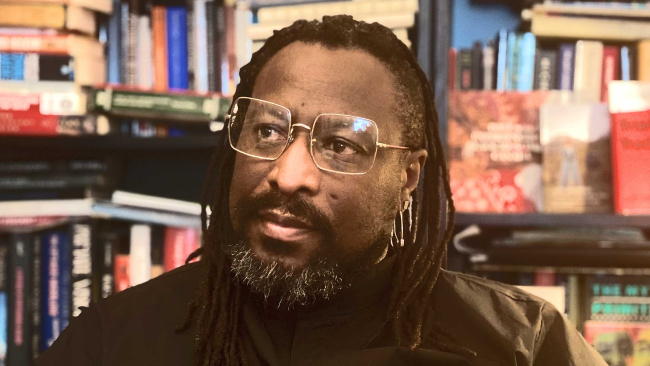
Five days after the Battle of Antietam—considered a turning point in favor of the Union during the American Civil War—United States President Abraham Lincoln issued the Emancipation Proclamation. It states that as of January 1, 1863, “all persons held as slaves” in states that seceded from the Union “shall be then, thenceforward, and forever free.”
However, slavery persisted through the end of the war. It wasn’t until Union General Gordon Granger arrived in Galveston, Texas, on June 19, 1865—celebrated today as Juneteenth—that Lincoln’s order was fully implemented.
Canadian writer Rinaldo Walcott, a professor and the Carl V. Granger Chair of Africana and American Studies at the University at Buffalo, posits that freedom remains an unfinished project for Black Americans and Black people around the world. In his book The Long Emancipation: Moving Toward Black Freedom, Walcott presents the idea that Black people haven’t experienced absolute freedom yet, arguing that it’s an ongoing journey that requires systemic, cultural, social, and economic changes.
On March 21, Walcott will visit the University of Rochester to challenge conventional narratives on emancipation through a nuanced talk on the enduring struggle for Black liberation. The talk closes out the 2023–2024 Neilly Author Series season that has celebrated the creation of the Black studies department at Rochester with black authors and a variety of perspectives on racism, freedom, and the Black experience.
Get the details and register to attend
The Long Emancipation is a multifaceted exploration of the complex nature of Black liberation movements, spanning from the transatlantic slave trade to the present day. In addition to highlighting the oversimplification of traditional views of emancipation, Walcott examines the representation of Blackness in media, literature, and pop culture and provides theoretical insights, drawing on critical race theory and Black feminist thought.
Several reviewers have called The Long Emancipation a must-read, especially for those who seek to understand present-day race relations and how they affect the socio-economic and political spheres. Canadian poet, novelist, and essayist Dionne Brand lauds the astonishing and devastating ways Walcott describes Black Americans’ state of “juridical unfreedom,” saying, “Once that idea's recalibrating weight and urgency strike you, you must think again where analysis and theory begin. You must begin again.”
Walcott is a widely published scholar of interdisciplinary Black studies. As a writer and critic, he researches Black diaspora cultural studies, gender, and sexuality with interests in nations, nationalisms, multiculturalism, policy, and education.
Walcott is the author of Black Like Who: Writing Black Canada (Insomniac Press, 1997 with a second revised edition in 2003), Queer Returns: Essays on Multiculturalism, Diaspora and Black Studies (Insomniac Press, 2016), and coauthor of Black Life: Post-BLM and the Struggle for Freedom (Arbeiter Ring, 2019). He also published On Property: Policing, Prisons, and the Call for Abolition (Biblioasis), nominated for several awards. ∎
All Neilly Author Series talks are free and open to the public, made possible by the Andrew H. and Janet Dayton Neilly Endowed Fund. For more information on Rinaldo Walcott’s talk, email Kim Osur, development manager at the River Campus Libraries.
Enjoy reading about the University of Rochester Libraries? Subscribe to Tower Talk.


